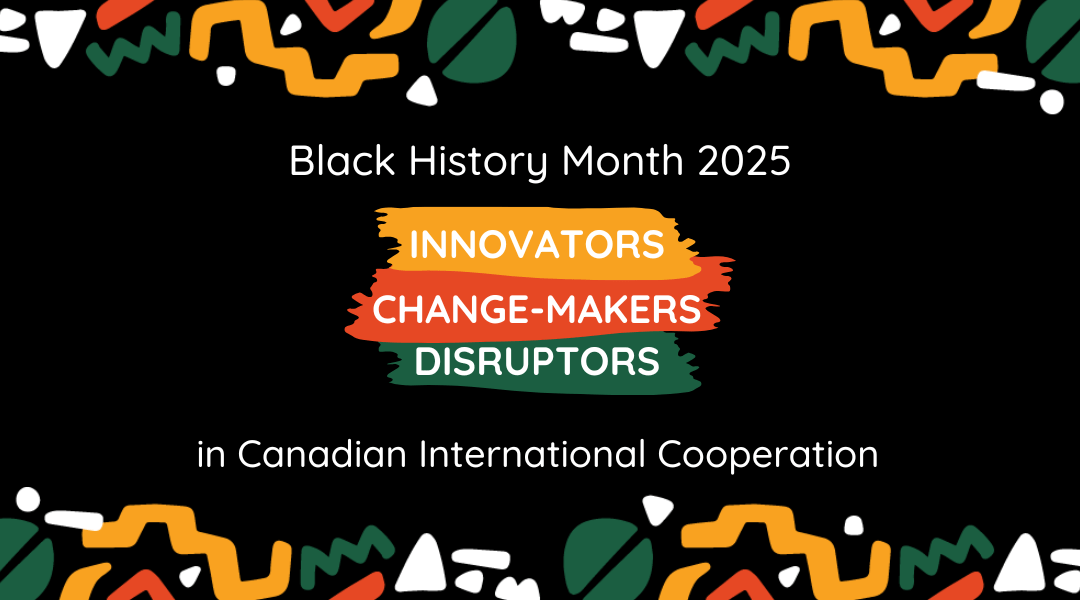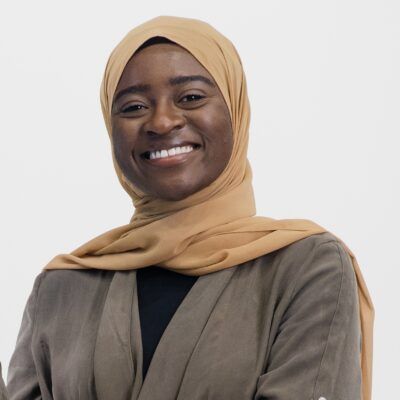For the second year, Cooperation Canada is celebrating Black History Month by highlighting the voices and contributions of Black leaders in Canadian international cooperation. Through this digital campaign, we are profiling changemakers, innovators and disruptors who are shaping the sector, sharing their achievements, challenges and perspectives. By amplifying these stories, we aim to foster greater recognition of Black leadership and inspire meaningful dialogue on equity and inclusion in international cooperation. Join us in recognizing and honouring these incredible leaders throughout February!
This week, we invite you to meet Salamatu Mohammed, Senior Grants Specialist at Islamic Relief Canada.
Why did you decide to work in international cooperation and what have been some career highlights?
My decision to work in international cooperation is personal. I am driven by a desire to help reverse the brain drain in Sub-Saharan Africa, ensuring that fewer children and young people have to grow up far from their place of origin in search for better opportunities. It is a bit ambitious, but it is fueled by person experiences and a deep value of community and connection.
Many of my career highlights revolve around the incredible people I’ve been fortunate to work with. From colleagues living and working in crisis who have the courage to show up every day and fulfill community needs. To those striving for greater equity at a strategic level in the sector. Their dedication is inspiring. More recently, I have been fortunate enough to work in a position where I support various offices in seeking funding opportunities. This role allows me to use my privilege and understanding of what donors want, but also to highlight the context and needs on the ground, helping to bridge the gaps in funding opportunities. While we work towards creating more accessible funding mechanisms, engaging in discussions about decolonizing the sector and taking steps towards more equitable outcomes is incredibly encouraging.
What experiences have influenced your career as a Black person in the international cooperation sector?
As a Black Muslim woman in the sector, my experiences have been a mix of privilege and challenges. There are moments when I am aware of being the only Black and/or Muslim person in a room. Sometimes, this makes me want to fade into the background, while other times, it pushes me to be more vocal. Navigating these spaces has taught me the importance of speaking up when I have something to share and creating welcoming spaces.
It is also encouraging to connect with other black professionals in the sector. Seeing each other’s struggles and lending support is rejuvenating. Shoutout to the ARC Hub for their great work in creating spaces for people of colour to connect and discuss their experiences. These interactions leave me more encouraged to act and confident, knowing there is a community of people striving to make it better, more inclusive and equitable.
What are your hopes for the future, and what advice would you give to those wishing to work in international cooperation?
My hope for the future is a more inclusive international cooperation sector. One where everyone, especially rights-holders, can meaningfully participate in decision-making that affects their lives. I am continuously learning and deconstructing my knowledge through various engagements with different people in the sector. I try to put into practice what I can do now and hold on to the rest with the hope that it can be applied one day.
For those wishing to work in the sector, know that you are embarking on a journey of learning. It’s important to connect with people, as this is how you learn about the sector, discover what is possible, and see where change is happening. It can be overwhelming but stay true to the course. Join efforts to adopt more decolonial initiatives and create more diverse collaboration. Most importantly, be compassionate and take care of yourself.


